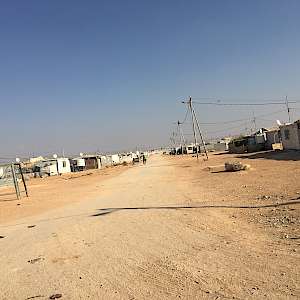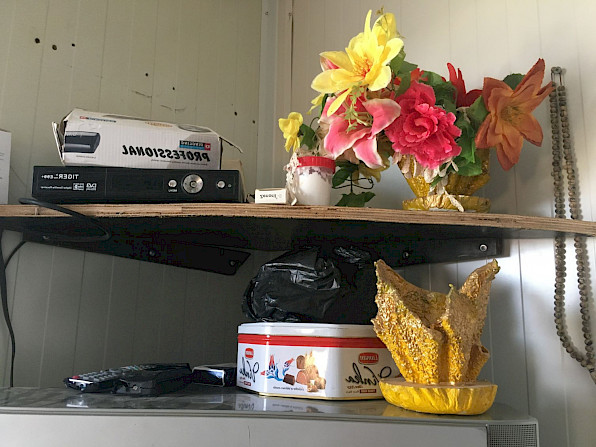
Yara
Yara is a mother of five. She explains how life is different for Syrian women like her in Al Azraq Camp:
"It is a life and we adjust. Slowly one adapts. We are not in a situation we have chosen for ourselves, so one has to adapt and help one’s self. At the beginning it was very hard, but we were able to adjust. The weather for example, we can’t change it, but now we have adjusted. (The weather is) a lot different. Our faces and hair look different here.
One factor is that many women here are alone with no husbands. The percentage of working women in Syria is not like it is here. Women here find it necessary to work outside the home and then come home for her household duties (as well). Life is hard and requires women to work. It is harder than Syria. Some women have lost the man who was the bread winner."
A common thread of many Syrian refugee womens' stories is their experiences as women without their husbands, or as widows of the conflict, often forcing them to fulfil multiple roles within their families and homes. Click here to read the story of a Syrian refugee woman in Jordan, who became a plumber "by accident" and who has now built a nationwide business and training centre for other female plumbers. As she notes:
“A woman is the carpenter, the blacksmith and the plumber in her own house – it is just normal. But if she goes and does this work at someone else’s house, it becomes unusual.”

Possessions in a refugee caravan in a Jordanian refugee camp, 2019. Image by Yasmine Shamma
